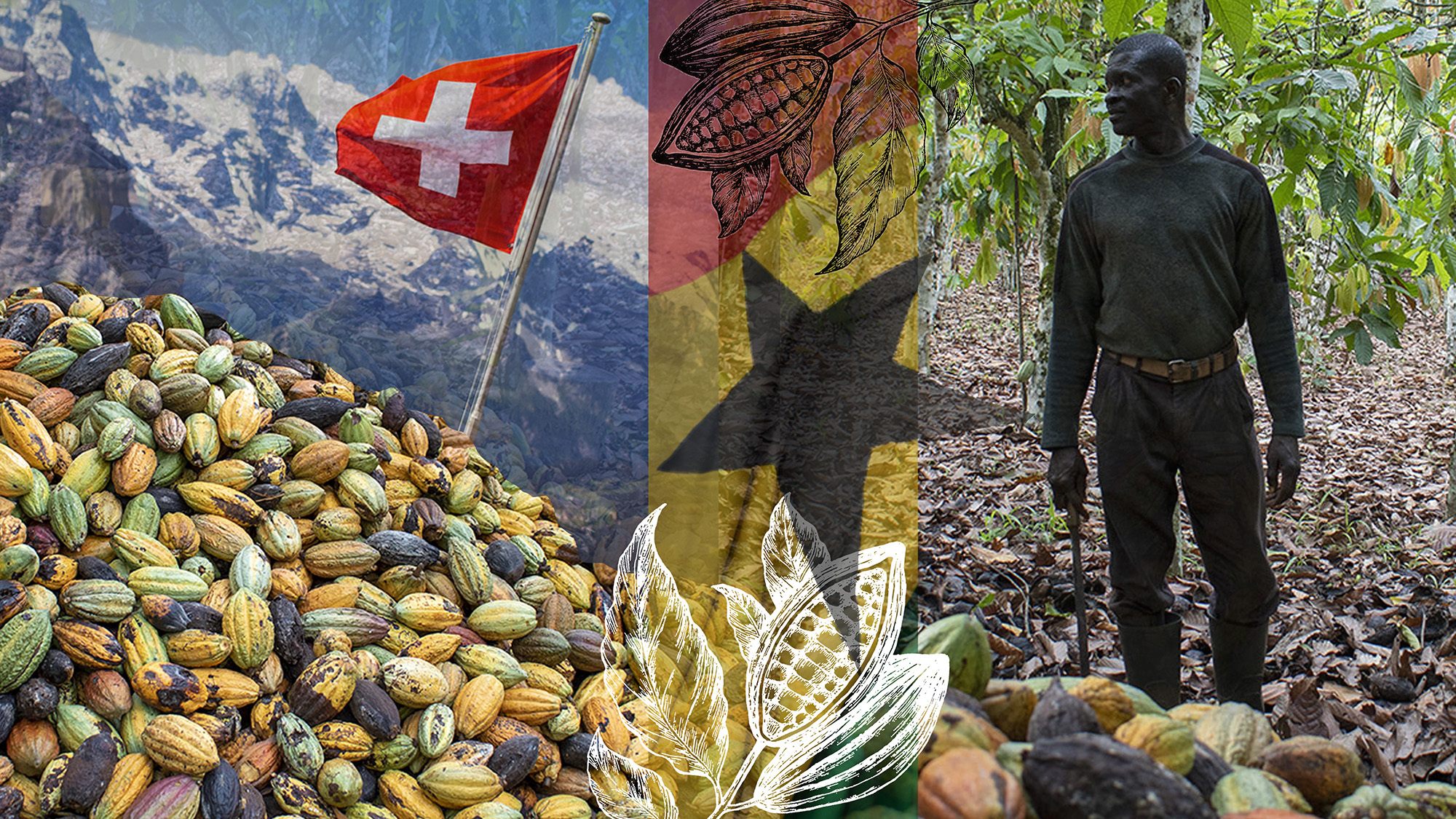
European chocolate makers agree to share data with West Africa

Chocolate and cocoa companies in Europe have agreed to share their data on cocoa farms with Ghana and Ivory Coast to help improve traceability and reduce deforestation.
The news was announced by the European Cocoa Association (ECA) and the Association of Chocolate, Biscuit and Confectionery Industries of Europe (CAOBISCO) at the eighth ECA Forum in Rome on Thursday. Swiss members include heavyweights in the industry like Nestlé and Barry Callebaut, as well as the association of Swiss chocolate and biscuit manufacturers Chocosuisse-Biscosuisse.
To meet sustainability commitments, European chocolate companies have invested heavily in tracing where their main raw material comes from to ensure forests are not being cleared to grow cocoa. However, so far, each company worked on its own to develop its own sustainable cocoa supply chain and the traceability data was not shared.
ECA and CAOBISCO members have now pledged to share this data with Ivory Coast and Ghana, the world’s top cocoa-producing countries. Members’ individual cocoa-sourcing databases will be combined into an overarching database that will then be shared with the Ivorian and Ghanaian cocoa boards.
“This data collection effort should feed into a combined database that is owned and driven by producing countries, in compliance with EU and national data privacy legislation, with the aim of achieving a robust nationwide traceability system,” said ECA and CAOBISCO in a joint statement.
Writing on the wall
The announcement comes as legislation around sourcing raw materials is being tightened in Europe. In November 2021, the EU Commission tabled a proposal for a regulation on deforestation-free supply chains. Cocoa was one of five global commodities (along with beef, palm oil, soy and coffee) selected for more regulation. The report states that cocoa alone is responsible for 7.5% of all EU-driven deforestation globally. One of the options on the table is a complete ban of cocoa products linked to deforestation from entering the EU market.
Like the EU, Switzerland also has sustainability targets for cocoa even though they are not binding. The goal, pledged in 2017, is for 80% of all cocoa imports to come from sustainable sources by 2025 (the share was 74% in 2020).
It is not just the companies under pressure. Cocoa producers like Ghana and Ivory Coast risk losing out on valuable export revenue if they cannot guarantee sustainable cocoa cultivation. Ghana is already working on developing a national cocoa database of its own. The country’s cocoa board had indicated to SWI swissinfo.ch that it would require companies to use the national database as a reference for supply chain traceability.

More
West Africa braces for tough sustainable cocoa rules in Europe

In compliance with the JTI standards
More: SWI swissinfo.ch certified by the Journalism Trust Initiative



























You can find an overview of ongoing debates with our journalists here . Please join us!
If you want to start a conversation about a topic raised in this article or want to report factual errors, email us at english@swissinfo.ch.